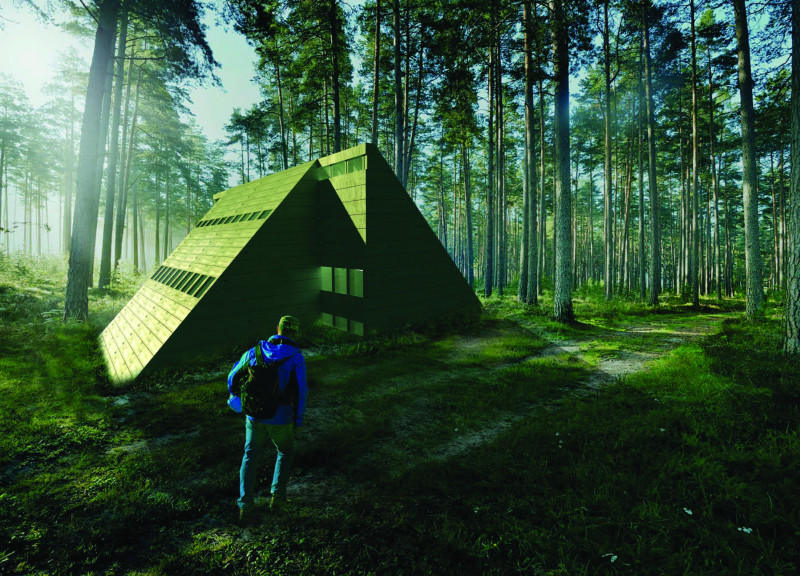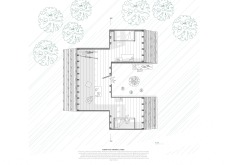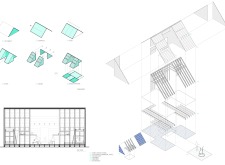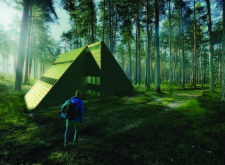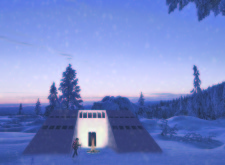5 key facts about this project
Functionally, the cabins are designed to accommodate guests participating in outdoor activities, including hiking and exploration. They provide a space that fosters community interaction while simultaneously offering individual retreats for relaxation and contemplation. The layout emphasizes flexibility, allowing for dynamic interactions among guests without sacrificing privacy. The design carefully considers the aspects of communal living, incorporating shared spaces while ensuring private areas remain inviting and comfortable.
Central to the project’s success is its use of sustainable materials. The main structural elements utilize sustainably sourced timber, which not only provides warmth and comfort but also integrates the cabins seamlessly into the natural scenery. The incorporation of recycled metal for roofing and structural components further emphasizes the commitment to environmental responsibility. Large expanses of glass are strategically placed to enhance natural light within the interiors, providing guests with unobstructed views of the breathtaking surroundings. This thoughtful design element helps to blur the boundaries between indoor and outdoor living, reinforcing the structure’s connection to nature.
The pitched roof design serves both functional and aesthetic purposes. It effectively manages snow and rain, allowing these elements to drain naturally while adding to the visual complexity of the cabins. The roofs evoke the natural contours of the landscape, enhancing the overall architectural dialogue with the site. Each cabin includes outdoor terraces that extend living spaces, encouraging guests to engage directly with the environment for leisure or dining.
Architectural ideas embedded in the Amber Road project prioritize the experience of the user. The modular configuration of the cabins offers an array of interconnected spaces that promote both social interaction and personal reflection. This balance caters specifically to modern adventurers seeking to reconnect with nature without forgoing the comforts associated with contemporary architecture.
Moreover, the integration of smart technology within the cabins ensures that energy efficiency aligns with the pursuit of sustainable living. By incorporating eco-friendly systems for heating and lighting, the cabins reduce their ecological footprint without compromising the quality of the guest experience.
The Amber Road Trekking Cabins exemplify a unique design approach that merges contemporary architectural concepts with a profound respect for the environment. Each element has been carefully considered to foster a sense of belonging while respecting and enhancing the natural landscape. Those interested in understanding the full scope of this project are encouraged to explore further details, including architectural plans, sections, and design ideas, to gain deeper insights into the thoughtful design decisions that shaped this initiative.


